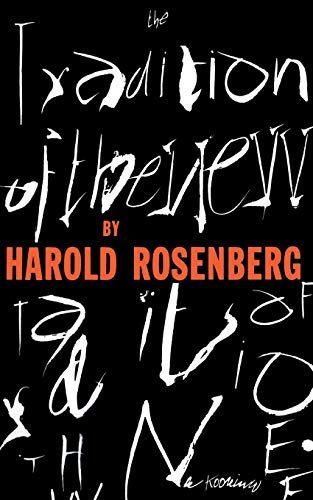
The Tradition Of The New
Harold Rosenberg was undoubtedly the most important American art critic of the twentieth century. It was he who first coined the term ”Action Painters” to refer to the American Abstract Expressionists such as Pollock, Kline, and de Kooning. Rosenberg's seminal writings on this movement, as well as on other artists such as Newman and Rothko, appear in The Tradition of the New (1959), his first and most influential book; its effects on subsequent art criticism, and the practice of art itself, are still felt today. The essays in this book are not limited to the art world, however: He also discusses poetry, political and cultural theory, and popular culture. As wide-ranging, independent, and deeply probing as the essays of Walter Benjamin, Harold Rosenberg's The Tradition of the New is a true classic of twentieth-century criticism.
Reviews
Giovanni Garcia-Fenech @giovannigf